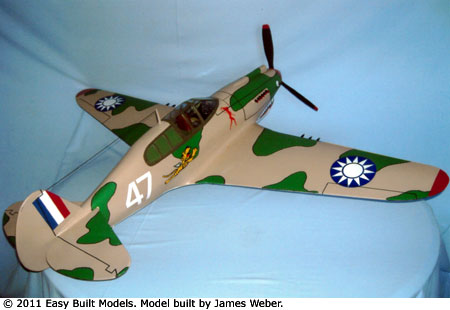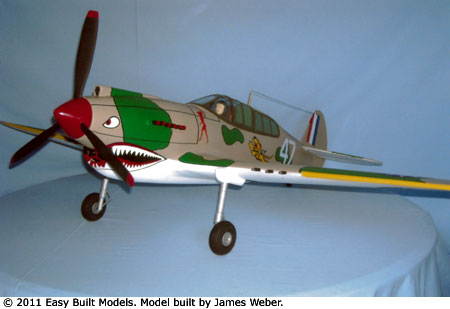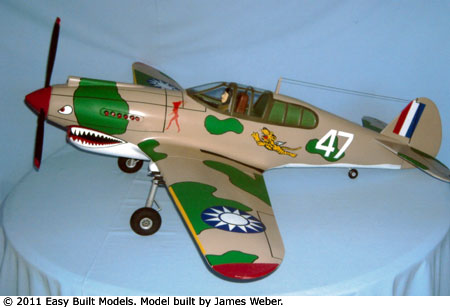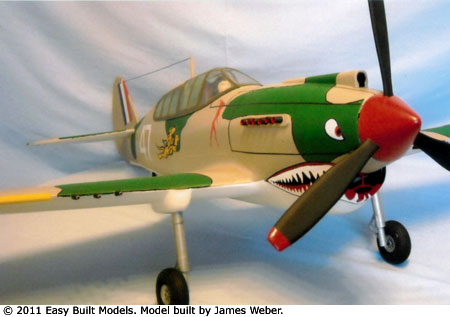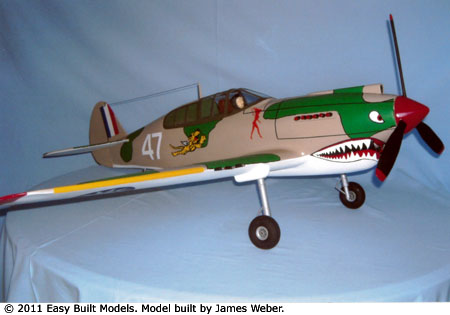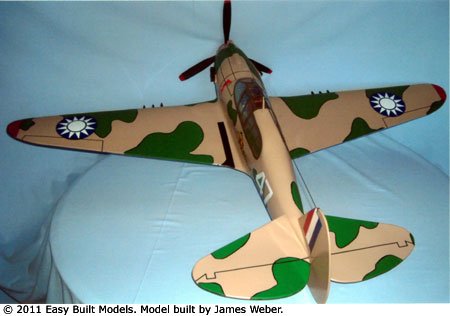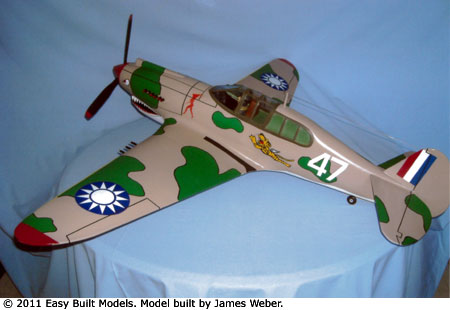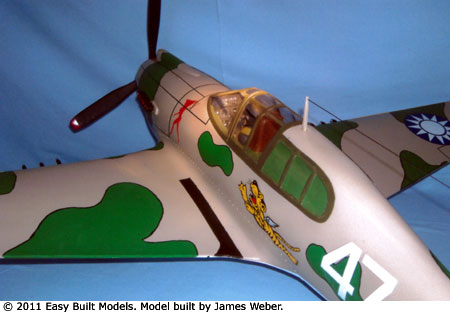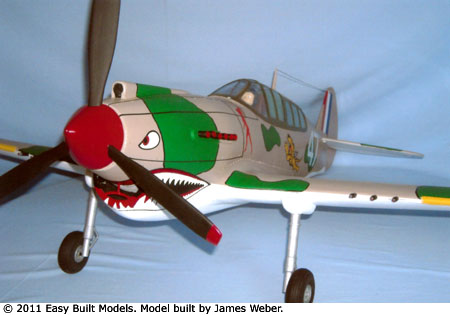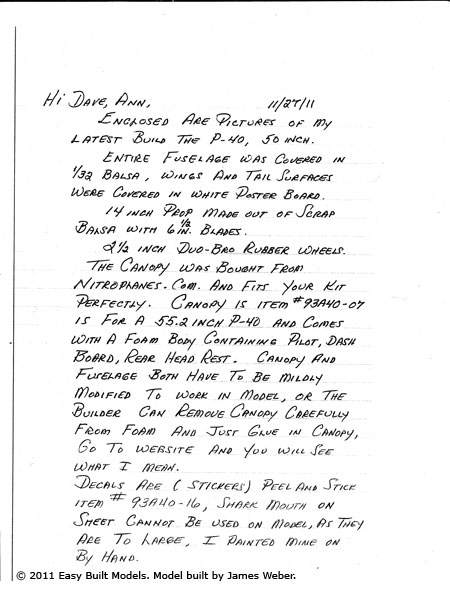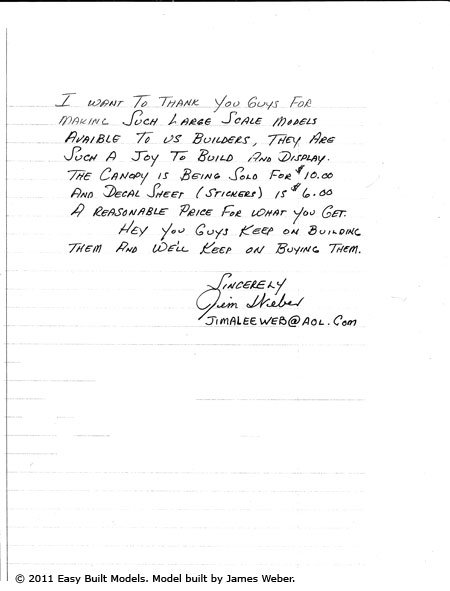Remembered as the "best second choice" the P-40 was a sturdy and durable monoplane fighter. It was the first American single-seat fighter to be mass-produced. Known also as the Kitty Hawk, it was introduced in 1938 at a time when it was sorely needed. Those diverted to the Royal Air Force were known as Tomahawks. Used early in WWII by the British and US, the P-40 was inadequate against the German Bf 109 but it was all that was available at the time. They were also used widely against the Japanese starting in 1942. The most famous of these were a volunteer group known as the US Flying Tigers who flew on behalf of China against the Japanese.
This kit is a 1:9 scale flying model. Not only is this a great rubber-powered aircraft, this jumbo model is also very popular for conversion to electric or gas-powered flight. Pre-1942 design, eligible for Society of Antique Modelers (SAM) contests.
This free flight rubber powered kit contains a full-size rolled plan, printed balsa and hand-picked balsa strip wood, clear plastic for the windshield, vacuum-molded spinner, wheels, landing gear wire, 12" EB propeller, EBM thrust bearing, FAI SuperSport rubber motor, and Easy Built Lite tissue in olive, light sky blue, and evergreen. To build this model you will need a building board, hobby knife, fine sandpaper, and glue.
CUSTOMER BUILDS & INFO
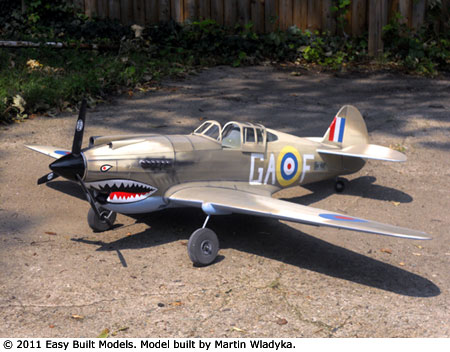
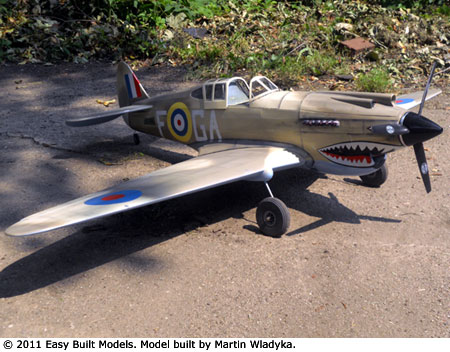
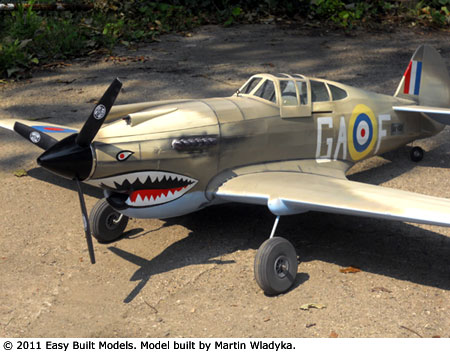
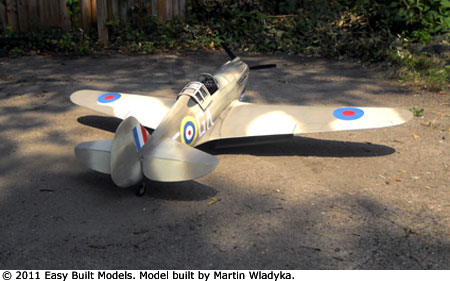
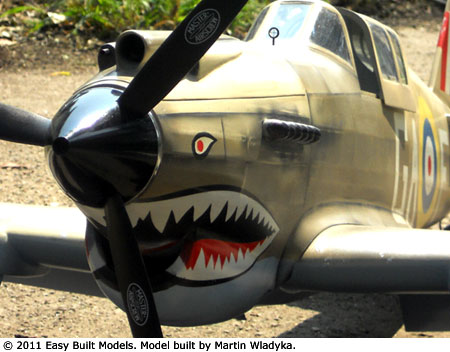
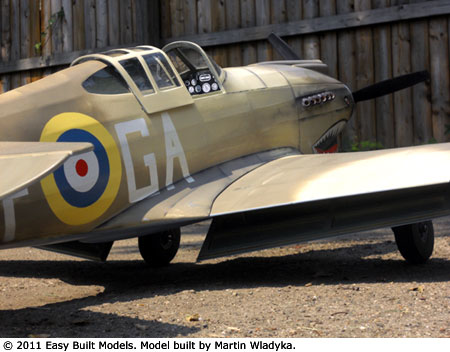
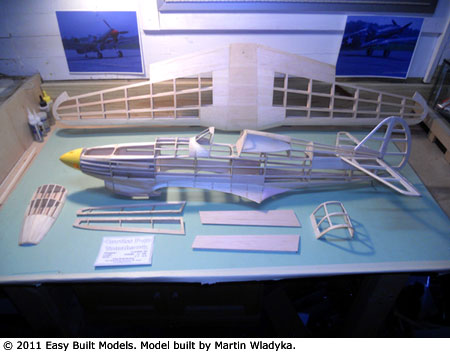
"Here are a few pictures of the completed P40 I built from your kit. It is electric powered with a power 15 and has a Spectrum radio for control. I enjoyed building your kit very much and it lends itself well to being converted." - Martin Wladyka
See the construction photos of this beautiful electric rc conversion.(CLICK HERE)
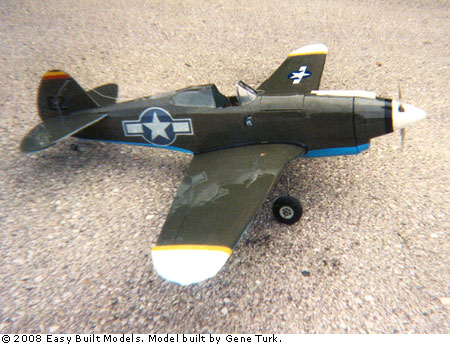
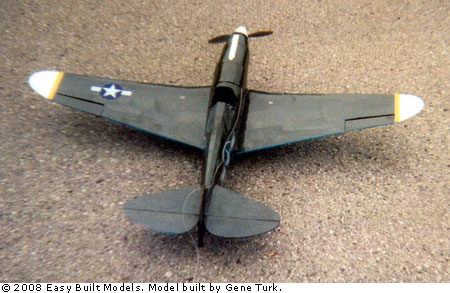
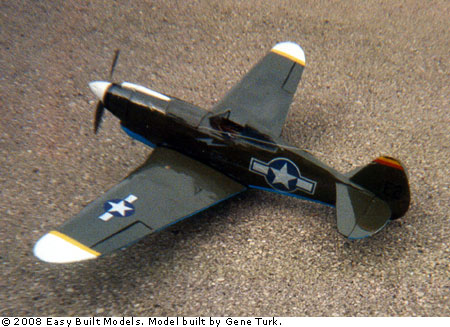
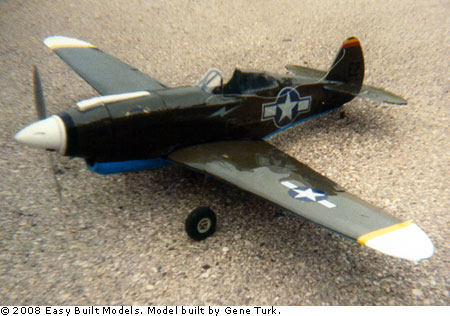
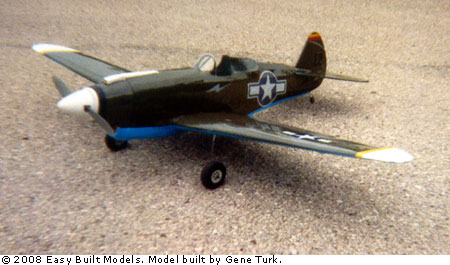
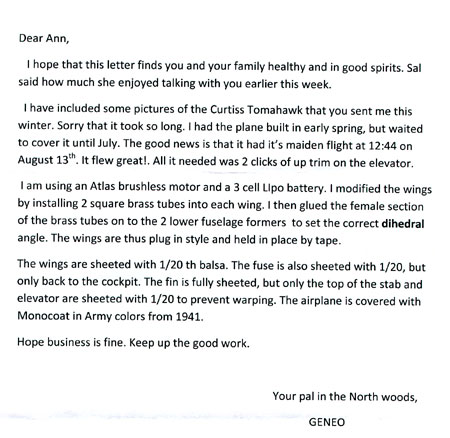
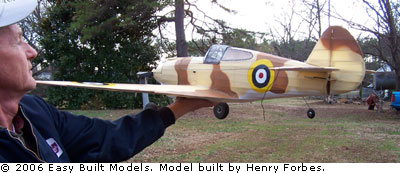
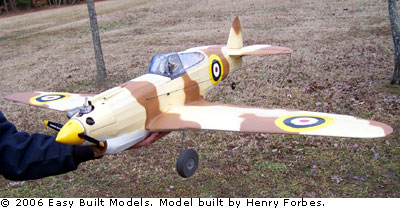
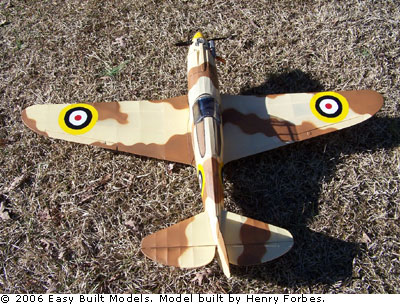
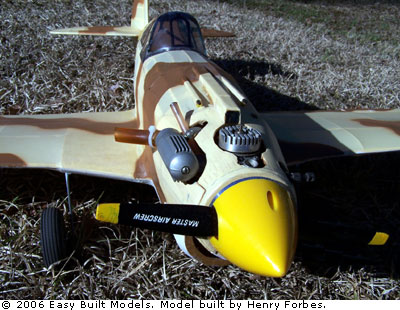
"Here are some pictures of my latest build. It is a full house control layout, and is powered by Magnum 15. Balsa does fly better!"
- Henry Forbes
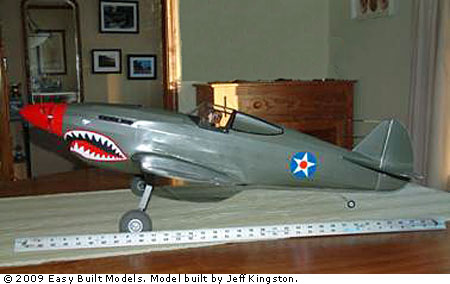
"I built and flew your Curtiss Tomahawk. I have electrified it to fly with a brushless Rimfire 28mm motor and 1250mHa lipo."
- Jeff Kingston
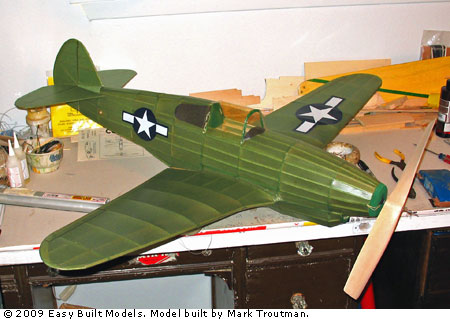
"Here is a photo of one of your 50" Curtis P-40 kits we just finished. We are hoping to fly it in the Flying Aces Club Giant scale and SAM scale events. We made the wings removable and added a 17" wooden propeller to qualify for the SAM events. This one was a real challenge and it took 85 different pieces of Jap tissue on the fuselage to make all the compound curves." - Mark Troutman
